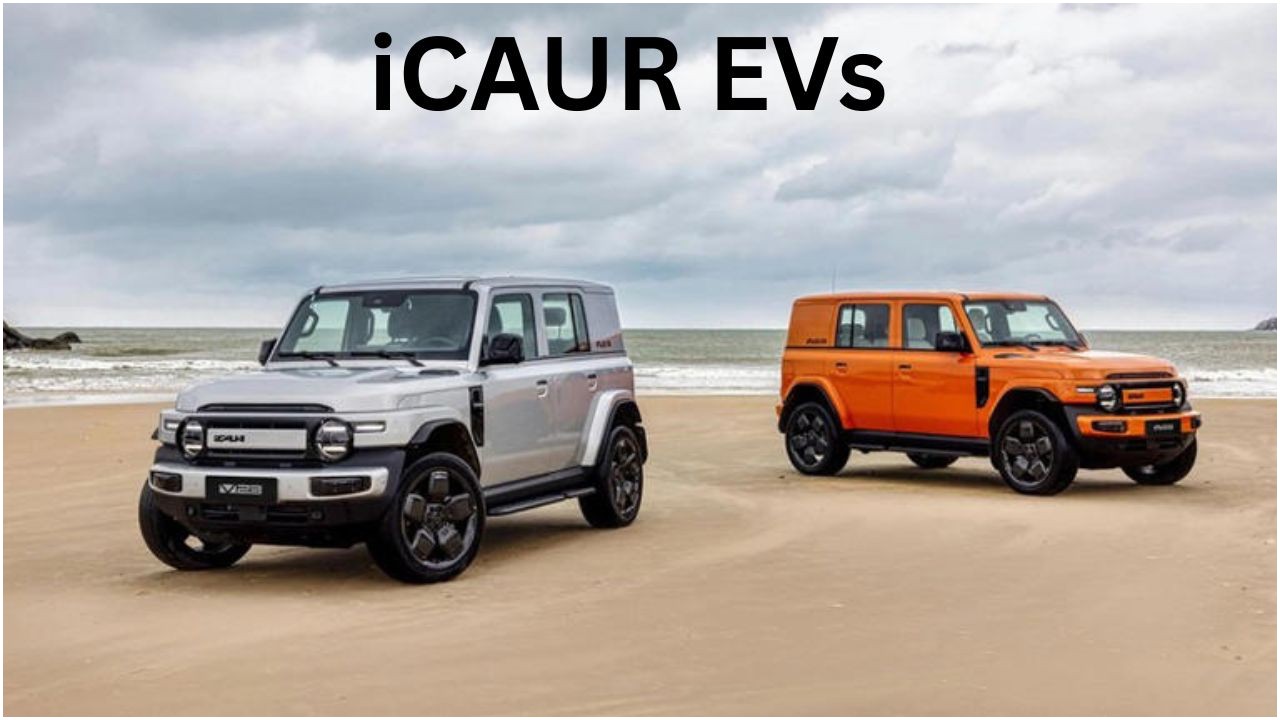China’s iCAUR EVs Debut: In an exciting development for the automotive industry, China’s iCAUR EVs made their much-anticipated debut on August 29, sparking discussions across South Africa about the future of motoring. With the global shift towards sustainable energy sources, this launch comes at a critical juncture. As South Africans, we find ourselves at a crossroads. The introduction of iCAUR EVs raises the question: is it time to bid farewell to traditional petrol vehicles in favor of electric alternatives? These electric vehicles, known for their efficiency and eco-friendliness, promise to revolutionize how we think about travel, potentially signaling the end of the petrol-powered era.
Understanding the Impact of iCAUR EVs on South Africa’s Market
The arrival of China’s iCAUR EVs on South African soil is more than just a technological advancement; it’s a significant shift in the automotive market dynamics. These electric vehicles are poised to compete fiercely with conventional vehicles, offering consumers a viable alternative. The potential impact on the market is substantial, with expectations of a gradual increase in EV adoption as charging infrastructure improves and prices become more competitive.
- Reduction in carbon emissions.
- Decrease in dependency on fossil fuels.
- Potential economic growth through new industry opportunities.
- Influence on local automotive manufacturing.
- Changes in government regulations and incentives.
- Shifts in consumer preferences towards more sustainable options.
- Long-term savings on fuel and maintenance costs.
- Challenges in adapting existing infrastructure to accommodate EVs.
Comparing iCAUR EVs to Traditional Petrol Vehicles
When considering making the switch from petrol to electric, it’s important to weigh the benefits and challenges associated with China’s iCAUR EVs. These vehicles offer several advantages over traditional petrol cars, primarily in terms of environmental impact and operational costs. However, potential buyers must also consider the current limitations of electric vehicles in South Africa.
| Aspect | iCAUR EVs | Petrol Vehicles | Considerations |
|---|---|---|---|
| Emissions | Zero emissions | High emissions | Environmental impact |
| Running Costs | Lower | Higher | Fuel and maintenance |
| Infrastructure | Developing | Established | Availability of charging stations |
| Range | Limited | Extended | Travel distance per charge/tank |
| Price | Higher upfront | Varies | Affordability |
| Adoption | Growing | Stable | Market trends |
| Technology | Innovative | Mature | Advancements and reliability |
Benefits of Embracing Electric Vehicles in South Africa
Switching to electric vehicles like the iCAUR EVs presents numerous benefits for South Africa. These advantages extend beyond individual savings and contribute to national and global efforts to combat climate change. By reducing reliance on petrol, South Africa can significantly cut down on greenhouse gas emissions, aligning with international environmental goals.
- Improved air quality in urban areas.
- Increased energy security with reduced oil imports.
- Potential for economic growth through local EV production.
- Job creation in the renewable energy and technology sectors.
- Promotion of sustainable transportation solutions.
- Enhanced public health outcomes due to lower pollution levels.
- Encouragement of innovation in the automotive industry.
- Alignment with global environmental commitments.
Challenges Facing the Adoption of iCAUR EVs in South Africa
| Challenge | Description | Impact | Potential Solutions | Stakeholders | Timeline |
|---|---|---|---|---|---|
| Infrastructure | Lack of charging stations | Limits adoption | Government incentives | Government, private sector | Short to medium-term |
| Cost | High initial purchase price | Deters buyers | Subsidies, financing options | Automakers, financial institutions | Medium-term |
| Awareness | Lack of consumer knowledge | Slows market growth | Public awareness campaigns | NGOs, media | Immediate |
The Future of Petrol Cars in a World of iCAUR EVs
With the growing presence of iCAUR EVs in South Africa, the future of petrol cars is uncertain. While these traditional vehicles have dominated the market for decades, the shift towards electric transportation is gaining momentum. This transition is driven by technological advancements, environmental concerns, and evolving consumer preferences.
- Potential decline in petrol vehicle sales.
- Increased focus on hybrid and electric models by manufacturers.
- Emergence of new business models in the automotive sector.
- Changes in government policy to support sustainable transportation.
- Development of new services, such as battery recycling and EV maintenance.
- Rising demand for alternative energy sources.
- Impact on the oil and gas industry.
Exploring the Path Ahead for South Africa’s Automotive Industry
| Trend | Impact | Opportunities | Challenges |
|---|---|---|---|
| Electrification | Market transformation | Innovation and investment | Infrastructure development |
| Sustainability | Environmental benefits | Policy support | Economic adaptation |
| Technology | Enhanced vehicle features | Research and development | Adoption barriers |
| Consumer Behavior | Shift in preferences | New market segments | Education and awareness |
| Regulation | Compliance and incentives | Industry alignment | Policy implementation |
FAQs on China’s iCAUR EVs
As South Africans consider the shift to electric vehicles, several questions arise about the iCAUR EVs and their implications. Here are some frequently asked questions to shed light on this topic.
- What are the main advantages of iCAUR EVs over petrol cars? iCAUR EVs offer zero emissions, lower running costs, and align with global sustainability efforts.
- How can South Africa improve its EV infrastructure? Government incentives and partnerships with private sectors can accelerate the development of charging stations.
- Are iCAUR EVs affordable for the average South African? While initially higher priced, long-term savings are achievable through reduced fuel and maintenance costs.
- What role does the government play in promoting EV adoption? The government can support EV adoption through subsidies, policy adjustments, and public awareness campaigns.
- Will petrol cars become obsolete with the rise of EVs? While the demand for petrol cars may decline, hybrid and electric models will coexist as the market evolves.







